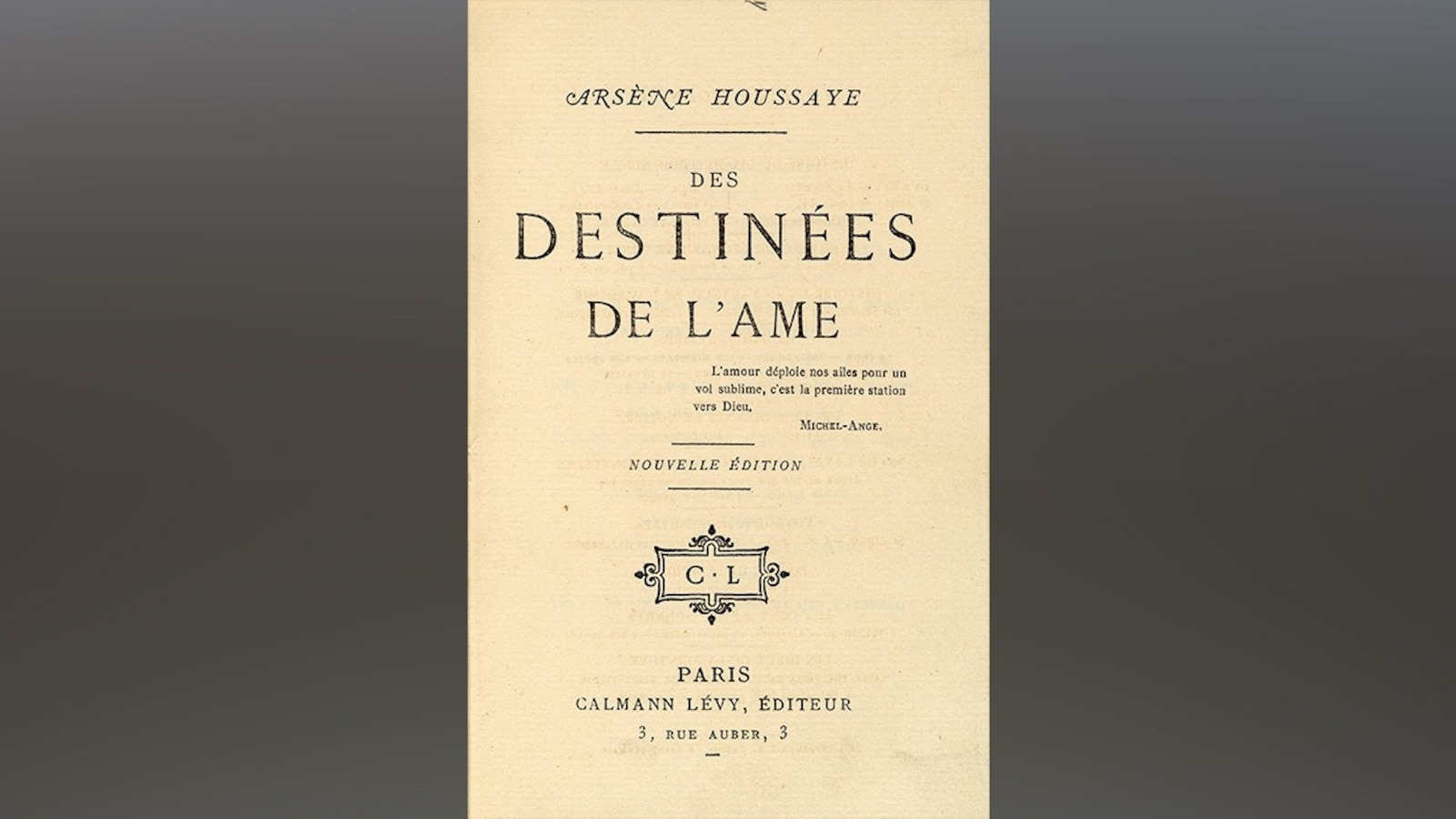For nearly a century, the hallowed halls of Harvard University’s Houghton Library had a book bound by human skin among the Ivy League’s collection of 20 million books until a recent decision to remove it.
Arsène Houssaye’s “Des destinées de l’âme” was published in 1879, however, the volume in question was bound in human skin by French physician Dr. Ludovic Bouland and has been in the University’s collection since 1934, according to Harvard’s announcement Wednesday.
The book’s premise is a reflection on the soul and life after death, and a handwritten note by Bouland inserted into the volume states that “a book about the human soul deserved to have a human covering,” according to the University.

Arsène Houssaye’s “Des destinées de l’âme” was published in 1879 and was bound in human skin by Dr. Ludovic Bouland.
Harvard University
Dr. Bouland bound the book with skin he took “without consent” from the body of an unnamed deceased female patient from a French psychiatric hospital where he worked, the announcement said.
The removal of the human skin from the book follows a review by Houghton Library, prompted by the recommendations of the Fall 2022 report from the Harvard University Steering Committee on Human Remains in University Museum Collections.
However, Paul Needham, a prominent scholar of early modern books and Harvard alumni, told ABC News the decision follows a consistent, 10-year call to remove the binding and an open letter he co-authored that was published as an advertisement in The Harvard Crimson this month.
“I first raised the question with the library almost 10 years ago, in June 2014. And I requested they should have the human skin respectfully removed and given a decent burial,” Needham said. “I think that the open letter is what finally moved them really to take action and make a statement because until yesterday we have not gotten the university to say a single word about binding in almost 10 years.”

Arsène Houssaye’s “Des destinées de l’âme” was published in 1879 and was bound in human skin by Dr. Ludovic Bouland.
Harvard University
“I’m very glad that they finally have made a statement,” Needham added. “It is absolutely the right thing to do.”
Harvard University declined to comment on Needham’s open letter to ABC News.
In 2014, the University publicly confirmed that the binding was made from human skin, however, the 19th-century book remained available to “anyone who asked for it,” Harvard said in the statement, “regardless of their reason for wishing to consult it.”
A Harvard library associate revealed that “decades ago” the book was used to “haze” Houghton Library student employees by asking them to “retrieve the book without being told it included human remains,” according to Harvard’s press release.

In this Feb. 20, 2008, file photo, the Houghton Library is shown on the campus of Harvard University in Cambridge, Mass.
The Boston Globe via Getty Images, FILE
Tom Hyry, Harvard’s associate university librarian for archives and Anne-Marie Eze, associate librarian of Houghton Library conducted a Q&A on Wednesday where they explained why the book remained in the collection for nearly a century.
“We’ve been working towards this for a few years now as part of the University’s larger project of addressing human remains in its collections,” Eze, who chaired a Houghton Library task force researching the practice of binding books in human skin, said. “The review confirmed that we can have reasonable certainty that Bouland removed and utilized the skin without consent.”
Addressing the “past failures in our stewardship of the book,” Hyry apologized and maintained that the University is “determined to move forward with care.”
“We apologize on behalf of Harvard Library for past failures in our stewardship of the book that further objectified and compromised the dignity of the human being at the center,” Hyry said. “We are determined to move forward with care, sensitivity, and ethical responsibility and are committed to best practices in the field, including reflection and correcting historical errors. “
The human binding was removed from “Des destinées de l’âme” in March and is currently in secure storage at the Harvard Library, according to Eze, who noted, “The library is consulting with appropriate authorities at the University and in France to determine an appropriate and respectful way of laying the remains to rest.”

